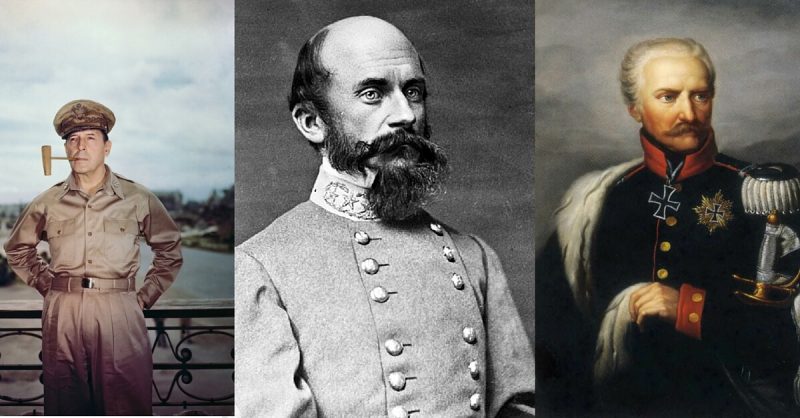A shocking number of military leaders have suffered from mental health issues, even as they held the lives of the men they led in their hands. At times ambition, politics, inheritance or the trauma of war have created commanders with varying degrees of insanity.
Sir William Erskine
The Duke of Wellington was plagued by new officers thrust upon him by the British government; men whose status came not from ability but from their background and connections. None was worse than Sir William Erskine.
By the time he was sent to serve under Wellington in the peninsula campaign, Erskine had already spent time in an asylum on two separate occasions. On learning that Erskine was about to become one of his senior commanders, Wellington wrote to the government frantically pointing out Erskine’s poor mental health. The reply from the Military Secretary was not as reassuring to Wellington as the writer perhaps intended it to be: “No doubt he is a little mad at times, but in his lucid intervals he is an uncommonly clever fellow”.
Despite Wellington’s attempts to manage him, Erskine proceeded to cause havoc for his own army. Sending his light infantry and cavalry in the wrong direction at the Battle of Sabugal in 1811, he prevented the British from achieving a far greater victory. Later, when he failed to defend a bridge at the Siege of Almeida, he let the trapped French garrison escape – much to Wellington’s dismay and fury.
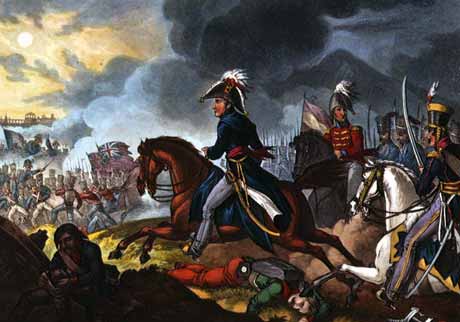
Erskine died in 1813 after jumping out of a window. Found on the ground, the dying general asked: “Why on earth did I do that?”
Marshal Leberecht von Blücher
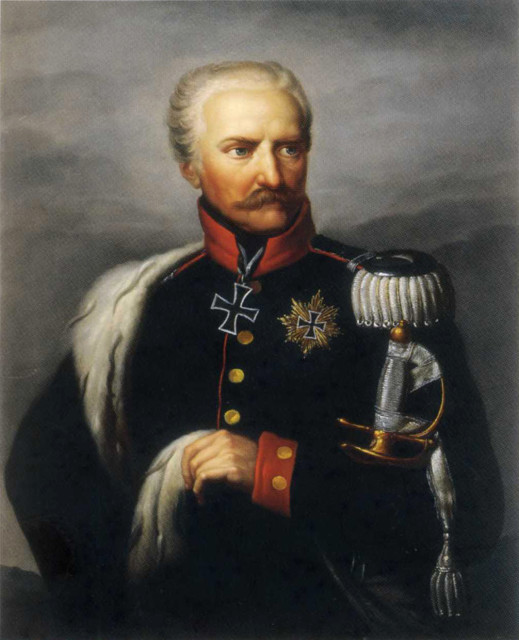
Erskine was not the only mentally unstable individual with whom Wellington was forced to collaborate. At least in Prussian Field Marshal von Blücher he found that his allies had an inspiring leader, though one whose mental health proved a huge hurdle.
Blücher was growing senile and melancholy by the later days of the Napoleonic wars, low moods coming upon him in fits, undermining his stability. He was subject to paranoid delusions, especially concerning the French, his enemies in these wars. These delusions included the belief that the French had sabotaged him by heating the floor of his room so much that he could only walk on tiptoe for fear of getting burnt. Most bizarre was his conviction that he had been made pregnant by a French soldier, and that the child he carried inside him was an elephant.
General Richard S. Ewell
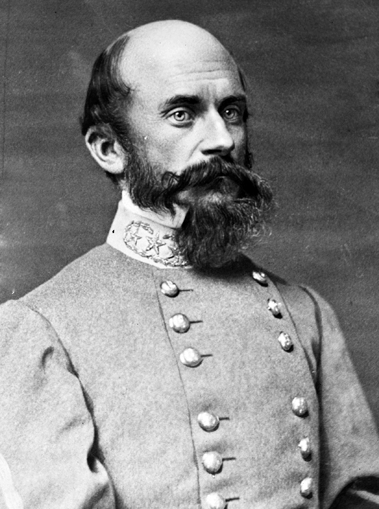
Confederate General Ewell not only looked like a bird, with his beaked nose and bald head – at times, he apparently believed that he was one. He would make chirping noises and peck at his food, cocking his head to one side like the winged creature he occasionally believed himself to be.
General Hajianestis
To fight their war with Turkey in 1921, the Greeks appointed General Hajianestis. More a politician than a professional soldier, Hajianestis liked his comforts and commanded the campaign from a yacht docked in Smyrna, where he could enjoy the nearby restaurants.
Sadly for the Greeks, decadence was only part of the problem with Hajianestis.
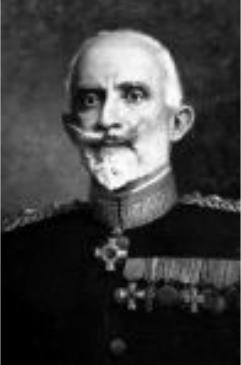
The general’s madness manifested itself in different ways. Sometimes he would just lie still, believing that he was dead. At other times, he became convinced that his legs were made of sugar or glass, and that he could not get out of bed because if he did they would shatter. Even when he was in command of his mind, his orders were a contradictory mess.
The Greek government at last replaced Hajianestis, but by that time irreparable damage had been done. The man meant to replace him, General Tricoupis, was already a prisoner of the Turkish forces and learned of his new position when his captors showed him a newspaper article.
General Douglas MacArthur
Some people struggle with poor mental health throughout their lives. For others, such as the American General MacArthur, it manifests with age.
MacArthur had always been a little paranoid, but the collapse of his marriage, and the mockery he received at the hands of his wife, undermined his self-esteem. By the time he was made commander of the United Nations troops in Korea he was struggling with erratic moods made worse by age. At 70 years old, his already unstable mental faculties were truly beginning to decline.
MacArthur’s madness took the form of extreme mood swings. He would swiftly shift from the darkness of depression to revelling in high moods and the certainty that all was well. This clouded his understanding of the Korean War.
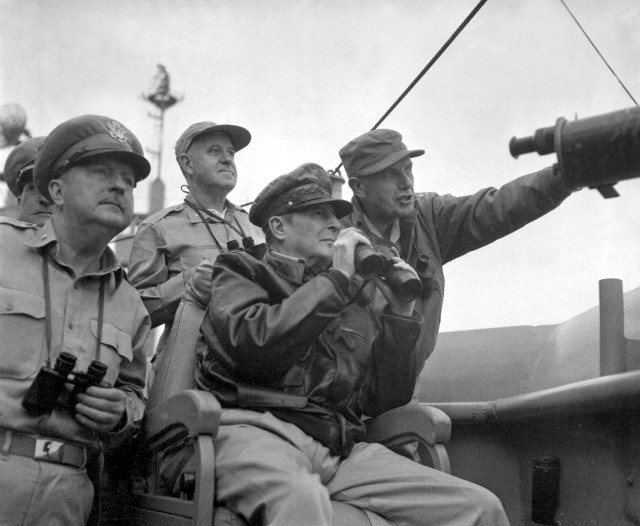
During his good moods, MacArthur was capable of taking bold risks that paid off for the UN forces, such as the Inchon landing. However, he could reach a dangerous extreme of overconfidence, claiming he could beat the communists with one hand tied behind his back.
During his low moods, despair crippled MacArthur. He became certain that he would fail, that the enemy was too overwhelming to be defeated. This perspective became an incentive not to act, but after the Inchon success few questioned this inaction, even as troops sat idle.
Overconfidence eventually led MacArthur to push north, over-stepping the UN mandate. Approaching the Chinese border at the Yalu River, he incited an attack by the Chinese, who utterly defeated his forces. Five days of wild mood swings settled down just in time for further defeats, as the Chinese surrounded UN positions. Paranoia took hold, MacArthur laying the blame for the defeats as far away as the government in Washington, and demanding the opportunity to use nuclear weapons.
At last, President Truman saw through the confused and conflicting information MacArthur had sent him. The general was clearly too unstable for his role and was removed.
